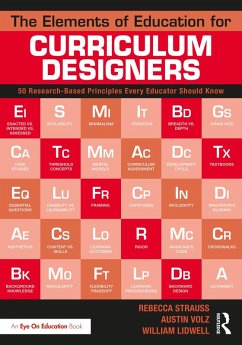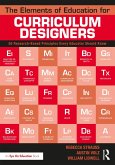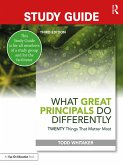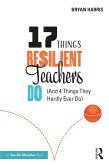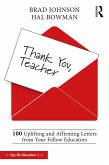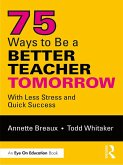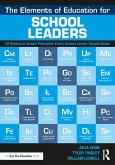Rebecca Strauss, Austin Volz, William Lidwell
The Elements of Education for Curriculum Designers (eBook, ePUB)
50 Research-Based Principles Every Educator Should Know
28,95 €
28,95 €
inkl. MwSt.
Sofort per Download lieferbar

14 °P sammeln
28,95 €
Als Download kaufen

28,95 €
inkl. MwSt.
Sofort per Download lieferbar

14 °P sammeln
Jetzt verschenken
Alle Infos zum eBook verschenken
28,95 €
inkl. MwSt.
Sofort per Download lieferbar
Alle Infos zum eBook verschenken

14 °P sammeln
Rebecca Strauss, Austin Volz, William Lidwell
The Elements of Education for Curriculum Designers (eBook, ePUB)
50 Research-Based Principles Every Educator Should Know
- Format: ePub
- Merkliste
- Auf die Merkliste
- Bewerten Bewerten
- Teilen
- Produkt teilen
- Produkterinnerung
- Produkterinnerung

Bitte loggen Sie sich zunächst in Ihr Kundenkonto ein oder registrieren Sie sich bei
bücher.de, um das eBook-Abo tolino select nutzen zu können.
Hier können Sie sich einloggen
Hier können Sie sich einloggen
Sie sind bereits eingeloggt. Klicken Sie auf 2. tolino select Abo, um fortzufahren.

Bitte loggen Sie sich zunächst in Ihr Kundenkonto ein oder registrieren Sie sich bei bücher.de, um das eBook-Abo tolino select nutzen zu können.
Written for utility, clarity, and practical value, The Elements of Education for Curriculum Designers provides indispensable professional development for educators working in a wide range of fields - from teachers and school leaders to educational publishers and instructional designers.
- Geräte: eReader
- ohne Kopierschutz
- eBook Hilfe
- Größe: 0.52MB
Andere Kunden interessierten sich auch für
![The Elements of Education for Curriculum Designers (eBook, PDF) The Elements of Education for Curriculum Designers (eBook, PDF)]() Rebecca StraussThe Elements of Education for Curriculum Designers (eBook, PDF)28,95 €
Rebecca StraussThe Elements of Education for Curriculum Designers (eBook, PDF)28,95 €![Study Guide: What Great Principals Do Differently (eBook, ePUB) Study Guide: What Great Principals Do Differently (eBook, ePUB)]() Todd WhitakerStudy Guide: What Great Principals Do Differently (eBook, ePUB)14,95 €
Todd WhitakerStudy Guide: What Great Principals Do Differently (eBook, ePUB)14,95 €![17 Things Resilient Teachers Do (eBook, ePUB) 17 Things Resilient Teachers Do (eBook, ePUB)]() Bryan Harris17 Things Resilient Teachers Do (eBook, ePUB)22,95 €
Bryan Harris17 Things Resilient Teachers Do (eBook, ePUB)22,95 €![Thank You, Teacher (eBook, ePUB) Thank You, Teacher (eBook, ePUB)]() Brad JohnsonThank You, Teacher (eBook, ePUB)21,95 €
Brad JohnsonThank You, Teacher (eBook, ePUB)21,95 €![75 Ways to Be a Better Teacher Tomorrow (eBook, ePUB) 75 Ways to Be a Better Teacher Tomorrow (eBook, ePUB)]() Annette Breaux75 Ways to Be a Better Teacher Tomorrow (eBook, ePUB)24,95 €
Annette Breaux75 Ways to Be a Better Teacher Tomorrow (eBook, ePUB)24,95 €![The Elements of Education for School Leaders (eBook, ePUB) The Elements of Education for School Leaders (eBook, ePUB)]() Julia ChunThe Elements of Education for School Leaders (eBook, ePUB)28,95 €
Julia ChunThe Elements of Education for School Leaders (eBook, ePUB)28,95 €![Dear Teacher (eBook, ePUB) Dear Teacher (eBook, ePUB)]() Brad JohnsonDear Teacher (eBook, ePUB)21,95 €
Brad JohnsonDear Teacher (eBook, ePUB)21,95 €-
-
-
Written for utility, clarity, and practical value, The Elements of Education for Curriculum Designers provides indispensable professional development for educators working in a wide range of fields - from teachers and school leaders to educational publishers and instructional designers.
Dieser Download kann aus rechtlichen Gründen nur mit Rechnungsadresse in A, B, BG, CY, CZ, D, DK, EW, E, FIN, F, GR, HR, H, IRL, I, LT, L, LR, M, NL, PL, P, R, S, SLO, SK ausgeliefert werden.
Produktdetails
- Produktdetails
- Verlag: Taylor & Francis eBooks
- Seitenzahl: 114
- Erscheinungstermin: 30. Dezember 2022
- Englisch
- ISBN-13: 9781000806151
- Artikelnr.: 66292811
- Verlag: Taylor & Francis eBooks
- Seitenzahl: 114
- Erscheinungstermin: 30. Dezember 2022
- Englisch
- ISBN-13: 9781000806151
- Artikelnr.: 66292811
- Herstellerkennzeichnung Die Herstellerinformationen sind derzeit nicht verfügbar.
Rebecca Strauss is the Director of Curriculum Design on the "Tiger Works" Research and Development team at Avenues The World School. She also teaches program development at Columbia University's Teachers College. An experienced learning designer who has led the vision, strategy, development, and implementation of a wide range of education programs for learners of all ages and backgrounds, she holds a B.A. from Barnard College, Columbia University and a Ph.D. from the University of Virginia.
Austin Volz is the Director of Advanced Program Design on the "Tiger Works" Research and Development team at Avenues The World School. He is the lead author of The Elements of Education for Teachers. The recipient of both a Fulbright scholarship and Foreign Language and Area Studies Fellowship, Austin holds a B.A. from St. John's College and an Ed.M. from the Harvard Graduate School of Education.
William Lidwell is the Chief Research and Development Officer of the "Tiger Works" Research and Development team at Avenues The World School. He is the author of several books, including the best-selling Universal Principles of Design.
Austin Volz is the Director of Advanced Program Design on the "Tiger Works" Research and Development team at Avenues The World School. He is the lead author of The Elements of Education for Teachers. The recipient of both a Fulbright scholarship and Foreign Language and Area Studies Fellowship, Austin holds a B.A. from St. John's College and an Ed.M. from the Harvard Graduate School of Education.
William Lidwell is the Chief Research and Development Officer of the "Tiger Works" Research and Development team at Avenues The World School. He is the author of several books, including the best-selling Universal Principles of Design.
Acknowledgements Introduction 1. Advance Organizers 2. Aesthetics 3.
Alignment 4. Background Knowledge 5. Backward Design 6. Breadth vs. Depth
7. Capstones 8. Case Studies 9. Content vs. Skills 10. Course Guides 11.
Crosswalks 12. Curriculum Assessment 13. Curriculum Maps 14. Curriculum vs.
Program 15. Development Cycle 16. Enacted vs. Intended vs. Assessed 17.
Essential Questions 18. Five Hat Racks 19. Flexibility Tradeoff 20. Framing
21. Grain Size 22. Inclusivity 23. Innovator's Dilemma 24.
Interdisciplinarity 25. Iteration 26. Labeling Systems 27. Learning
Objectives 28. Learning Outcomes 29. Learning Progressions 30. Learning
Tasks 31. Levels 32. Magician's Code 33. Mental Models 34. Minimalism 35.
Modularity 36. Propositional Density 37. Proximity 38. Rigor 39.
Scalability 40. Specialization 41. Spiral Curriculum 42. Stakeholder Assets
43. Storytelling 44. Student-Facing vs. Teacher-Facing 45. Student Work
Samples 46. Subject-Matter Experts 47. Templates 48. Textbooks 49.
Threshold Concepts 50. Usability vs. Learnability
Alignment 4. Background Knowledge 5. Backward Design 6. Breadth vs. Depth
7. Capstones 8. Case Studies 9. Content vs. Skills 10. Course Guides 11.
Crosswalks 12. Curriculum Assessment 13. Curriculum Maps 14. Curriculum vs.
Program 15. Development Cycle 16. Enacted vs. Intended vs. Assessed 17.
Essential Questions 18. Five Hat Racks 19. Flexibility Tradeoff 20. Framing
21. Grain Size 22. Inclusivity 23. Innovator's Dilemma 24.
Interdisciplinarity 25. Iteration 26. Labeling Systems 27. Learning
Objectives 28. Learning Outcomes 29. Learning Progressions 30. Learning
Tasks 31. Levels 32. Magician's Code 33. Mental Models 34. Minimalism 35.
Modularity 36. Propositional Density 37. Proximity 38. Rigor 39.
Scalability 40. Specialization 41. Spiral Curriculum 42. Stakeholder Assets
43. Storytelling 44. Student-Facing vs. Teacher-Facing 45. Student Work
Samples 46. Subject-Matter Experts 47. Templates 48. Textbooks 49.
Threshold Concepts 50. Usability vs. Learnability
Acknowledgements Introduction 1. Advance Organizers 2. Aesthetics 3.
Alignment 4. Background Knowledge 5. Backward Design 6. Breadth vs. Depth
7. Capstones 8. Case Studies 9. Content vs. Skills 10. Course Guides 11.
Crosswalks 12. Curriculum Assessment 13. Curriculum Maps 14. Curriculum vs.
Program 15. Development Cycle 16. Enacted vs. Intended vs. Assessed 17.
Essential Questions 18. Five Hat Racks 19. Flexibility Tradeoff 20. Framing
21. Grain Size 22. Inclusivity 23. Innovator's Dilemma 24.
Interdisciplinarity 25. Iteration 26. Labeling Systems 27. Learning
Objectives 28. Learning Outcomes 29. Learning Progressions 30. Learning
Tasks 31. Levels 32. Magician's Code 33. Mental Models 34. Minimalism 35.
Modularity 36. Propositional Density 37. Proximity 38. Rigor 39.
Scalability 40. Specialization 41. Spiral Curriculum 42. Stakeholder Assets
43. Storytelling 44. Student-Facing vs. Teacher-Facing 45. Student Work
Samples 46. Subject-Matter Experts 47. Templates 48. Textbooks 49.
Threshold Concepts 50. Usability vs. Learnability
Alignment 4. Background Knowledge 5. Backward Design 6. Breadth vs. Depth
7. Capstones 8. Case Studies 9. Content vs. Skills 10. Course Guides 11.
Crosswalks 12. Curriculum Assessment 13. Curriculum Maps 14. Curriculum vs.
Program 15. Development Cycle 16. Enacted vs. Intended vs. Assessed 17.
Essential Questions 18. Five Hat Racks 19. Flexibility Tradeoff 20. Framing
21. Grain Size 22. Inclusivity 23. Innovator's Dilemma 24.
Interdisciplinarity 25. Iteration 26. Labeling Systems 27. Learning
Objectives 28. Learning Outcomes 29. Learning Progressions 30. Learning
Tasks 31. Levels 32. Magician's Code 33. Mental Models 34. Minimalism 35.
Modularity 36. Propositional Density 37. Proximity 38. Rigor 39.
Scalability 40. Specialization 41. Spiral Curriculum 42. Stakeholder Assets
43. Storytelling 44. Student-Facing vs. Teacher-Facing 45. Student Work
Samples 46. Subject-Matter Experts 47. Templates 48. Textbooks 49.
Threshold Concepts 50. Usability vs. Learnability
